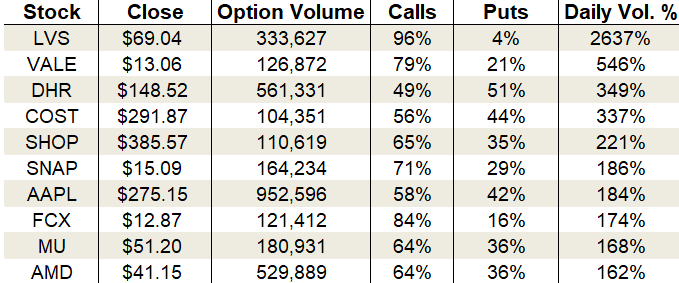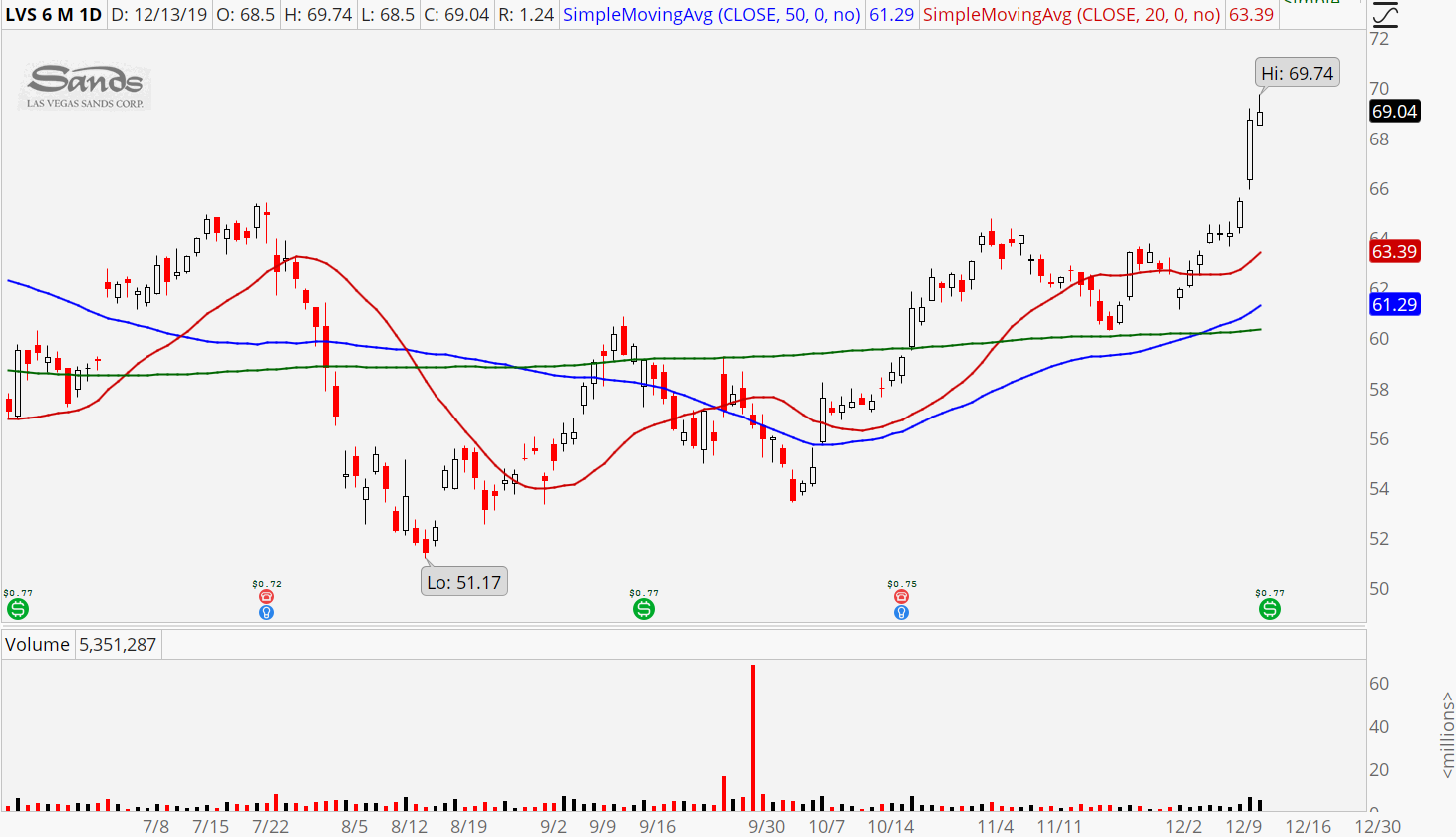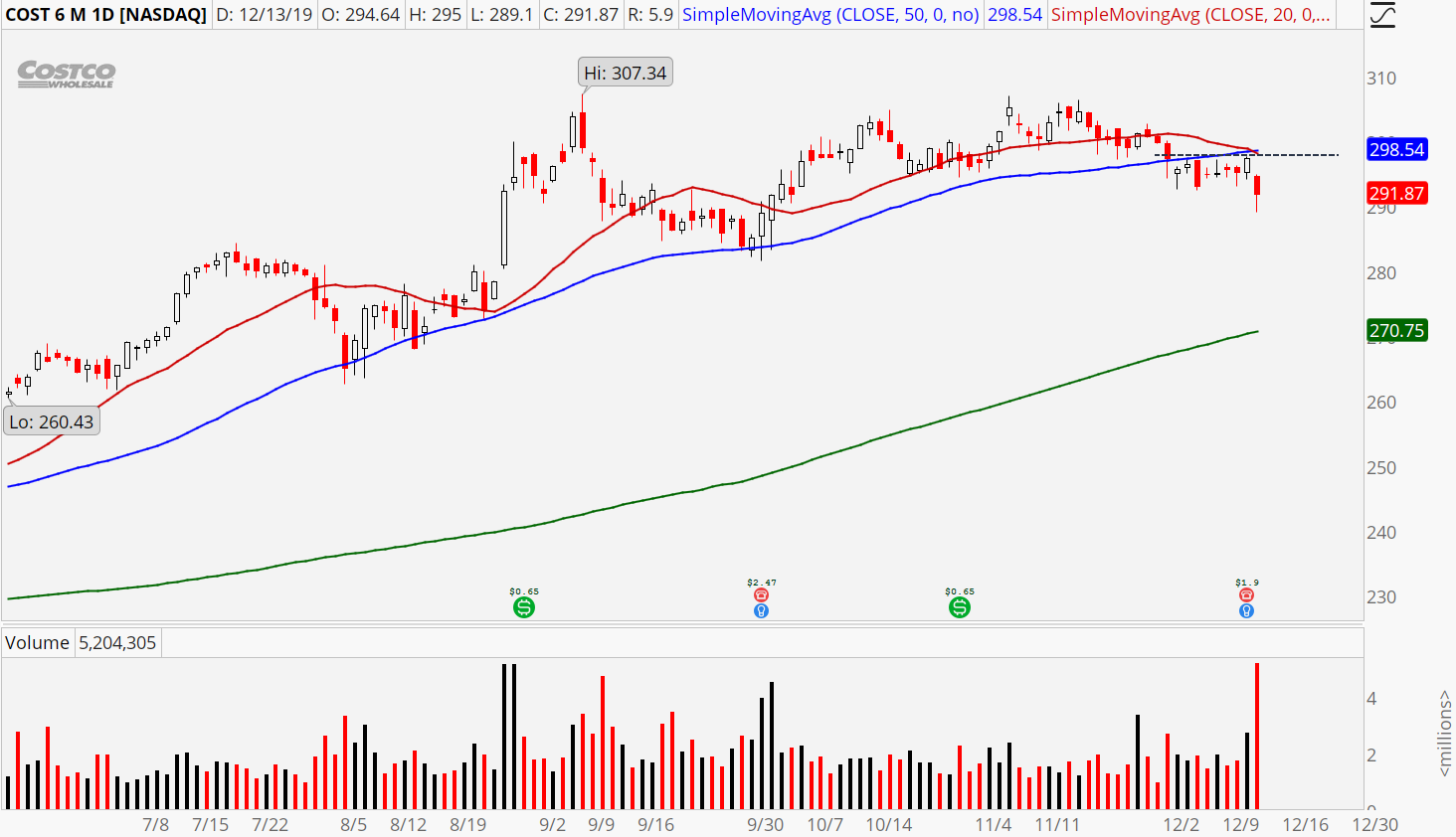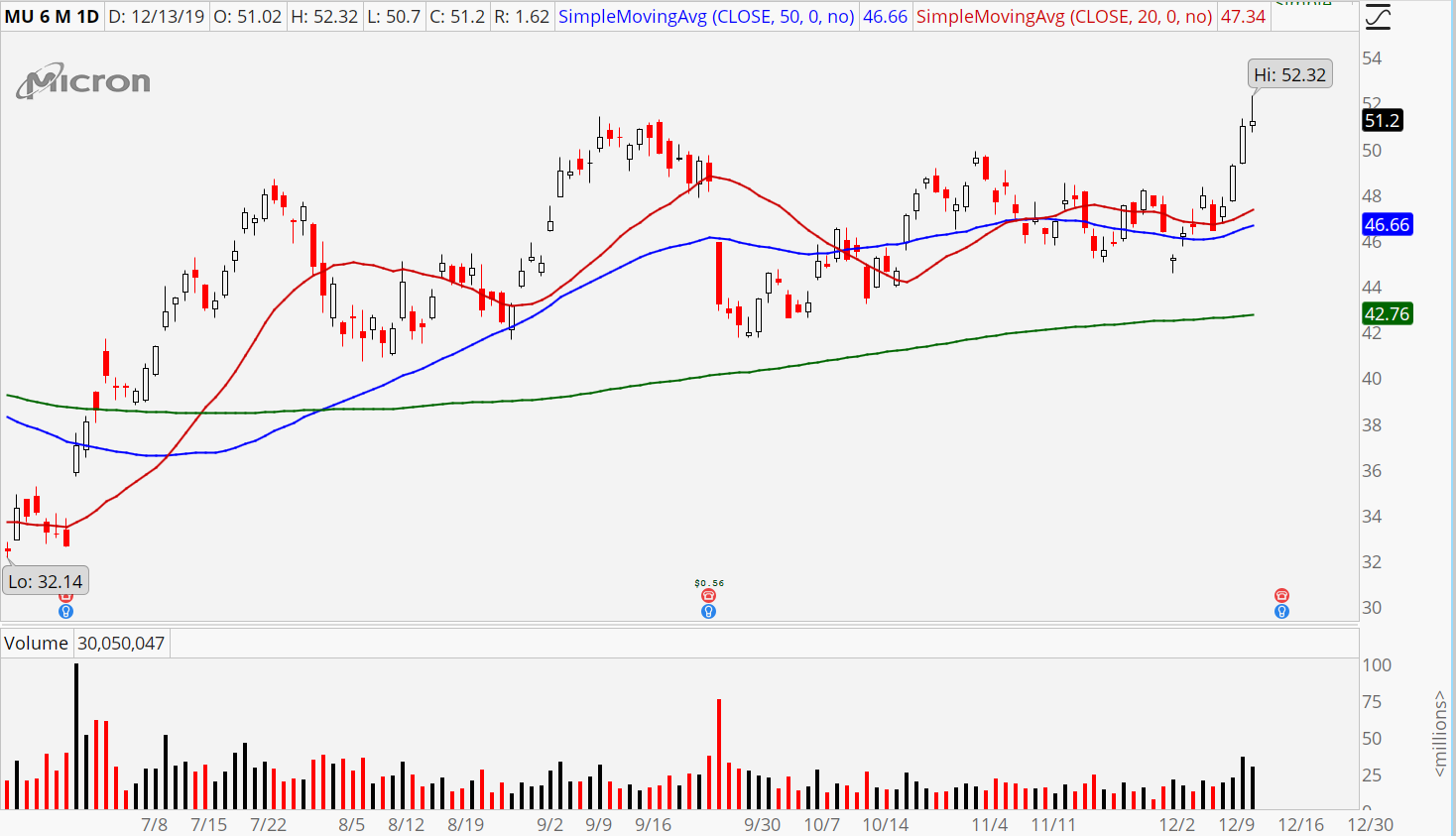Last week’s bullish bonanza is continuing this morning with U.S. stock futures bright green across the board.
Heading into the open, futures on the Dow Jones Industrial Average are up 0.24% and S&P 500 futures are higher by 0.54%. Nasdaq Composite futures have added 0.61%.
The call volume explosion pushed into Friday with eye-popping activity. Over 37.3 million calls crossed the table compared to only 19.9 million puts. Still, compared to Thursday’s blowout, the gap between calls and puts did narrow at the CBOE Volatility Index (VIX). The single-session equity put/call volume ratio snapped back to 0.55 but remains at the lower end of its range. The 10-day moving average slipped to 0.60.
Options gunslinger targeted Las Vegas Sands (NYSE:LVS), Costco (NASDAQ:COST) and Micron (NYSE:MU), among other big names.
Let’s take a closer look.

Las Vegas Sands (LVS)

The trade deal news sparked a bullish stampede last week, but some stocks benefited more than others. The casino industry, for example, scored big-time on Thursday. Las Vegas Sands is one of the best looking of the bunch, and its looming dividend payout had options trading booming on Friday.
Now is as good a time as ever to revisit LVS stock.
Last week’s rally broke multiple resistance zones and lifted the shares to a new 52-week high. Volume leaped to almost double the average volume on Thursday and Friday, showing institutions entering the fray in a big way. While you can be forgiven for waiting for a pause or pullback before deploying bull trades, LVS stock now belongs at the top of your buy list.
As is usually the case, the pop in options trading to an eye-popping 2,637% of the average daily volume was due to traders targeting today’s dividend. Call volume jumped to 96% of the total activity, which saw 333,627 contracts racked up.
Today’s quarterly payment of 77 cents translates into a juicy 4.5% yield.
Implied volatility is dirt cheap these days at 25% or the 2nd percentile of its one-year range. The expected daily move is $1.08 or 1.6%, so set your targets accordingly.
Costco (COST)

Source: The thinkorswim® platform from TD Ameritrade
Amid the trade deal euphoria, Costco quietly reported its latest quarterly earnings numbers for the fiscal first quarter of 2020. The stock was trading a few percent off its highs and below the 50-day moving average ahead of the event, leaving plenty of room for an upside surprise if the company delivered.
And, well, it didn’t.
Costco raked in earnings per share of $1.90 on revenue of $37.04 billion. The Street was looking for $1.71 on $37.25 billion in sales. While the bottom-line beat was great, investors focused on the top-line miss and took COST stock down 1.8%.
Resistance now reigns at $297, so until the stock can climb back above it the daily trend is lower. It’s really hard to turn bearish with such a bullish backdrop for equities though. I’d rather wait for strength and buy then chase new shorts here.
On the options trading front, calls outpaced puts by a slim margin. Total activity climbed to 337% of the average daily volume, with 104,351 contracts traded.
The typical post-earnings volatility crush was on full display Friday, driving the metric down to 17% or the 14th percentile of its one-year range. Looking forward, the market is now baking in daily moves of $3.06 or 1%.
Micron (MU)

Semiconductor stocks awoke in a big way late last week with the likes of Micron and Advanced Micro Devices (NASDAQ:AMD) ripping higher. The gains for MU stock come as shareholders gear up for this week’s earnings announcement. Micron has a history of big gaps after the event so fireworks are likely.
With the price trend courting new 52-week highs and accumulation days multiplying, bulls aren’t being shy pressing their bets ahead of the number so the big money seems to be betting on a decent report.
Volatility expectations confirm the market’s complacency. At 45%, implied volatility sits at only the 24th percentile of its one-year range so the smart money isn’t betting on a repeat of last quarter’s monster drop.
The pattern in recent options trading reveals calls dominating the field. On Friday, total activity grew to 168% of the average daily volume, with 180,931 contracts traded. Calls contributed 64% to the session’s sum.
As of this writing, Tyler Craig didn’t hold a position in any of the aforementioned securities. Check out his recently released Bear Market Survival Guide to learn how to defend your portfolio against market volatility.
